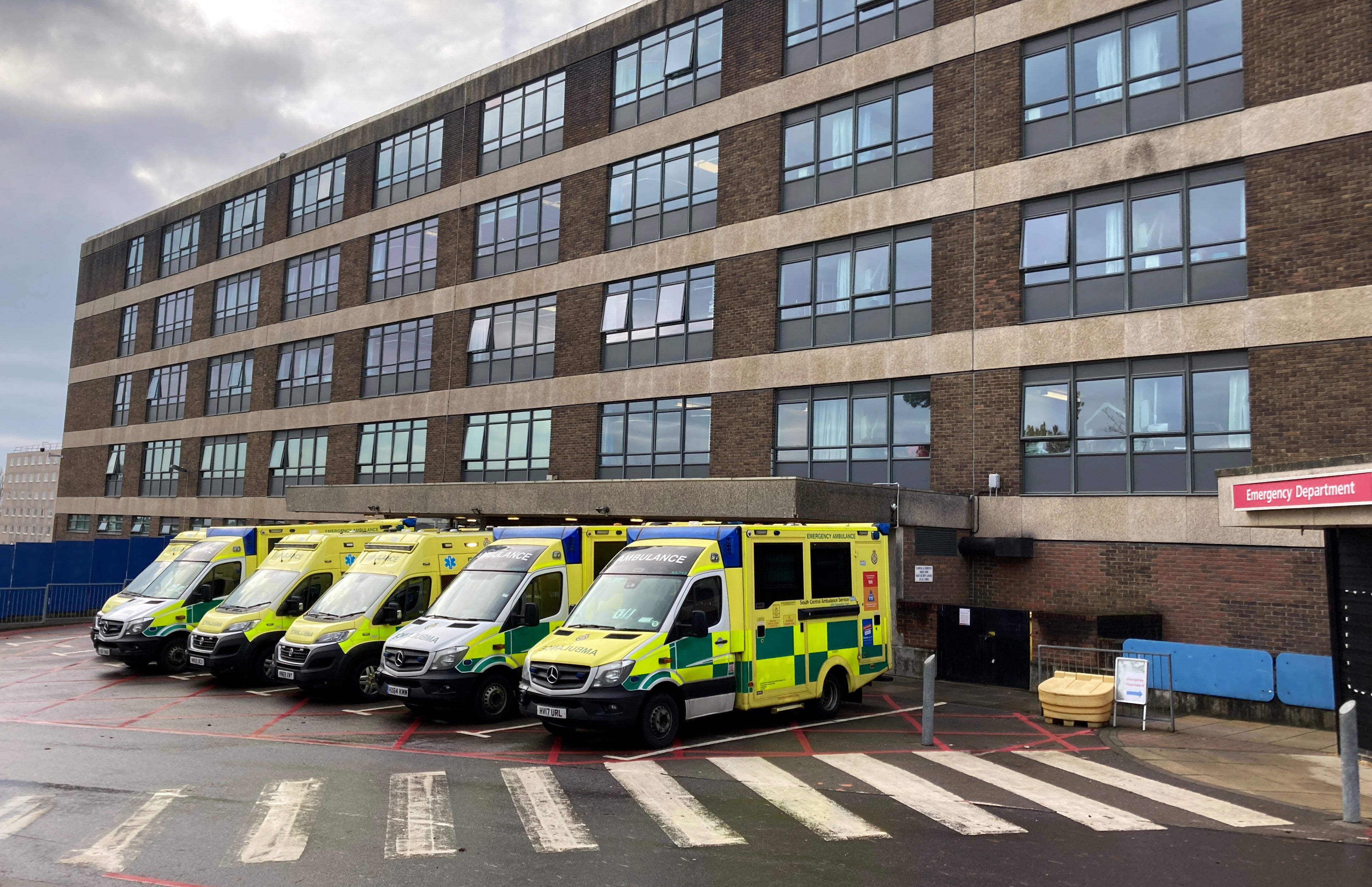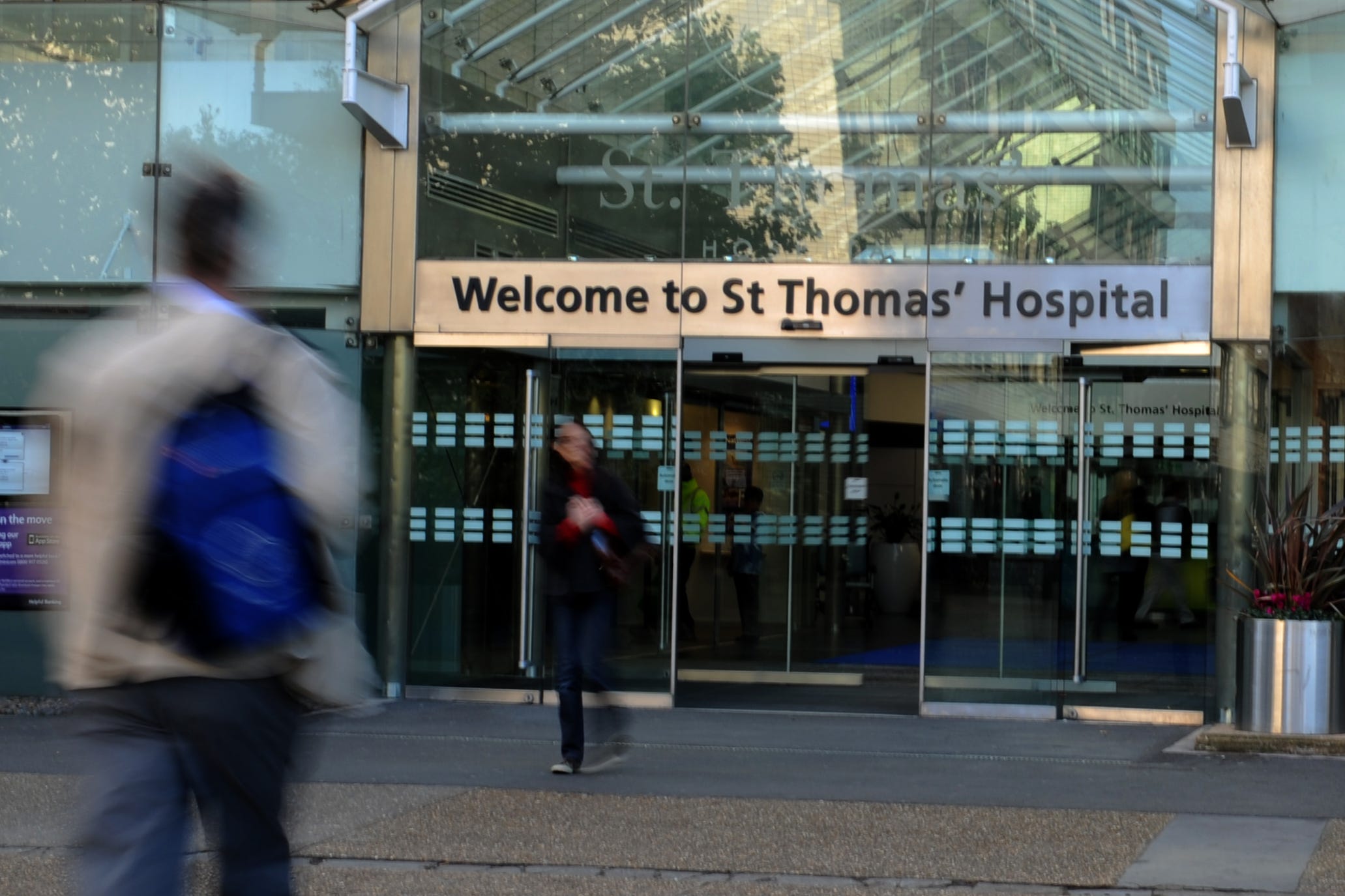NHS cyber attack causing chaos in London hits other hospitals in UK
Exclusive NHS services outside of London have been affected by major ransomware attack

Your support helps us to tell the story
From reproductive rights to climate change to Big Tech, The Independent is on the ground when the story is developing. Whether it's investigating the financials of Elon Musk's pro-Trump PAC or producing our latest documentary, 'The A Word', which shines a light on the American women fighting for reproductive rights, we know how important it is to parse out the facts from the messaging.
At such a critical moment in US history, we need reporters on the ground. Your donation allows us to keep sending journalists to speak to both sides of the story.
The Independent is trusted by Americans across the entire political spectrum. And unlike many other quality news outlets, we choose not to lock Americans out of our reporting and analysis with paywalls. We believe quality journalism should be available to everyone, paid for by those who can afford it.
Your support makes all the difference.A South East hospital has been affected by a major cyber attack on NHS testing services in London, The Independent has learned.
Portsmouth Hospitals University NHS Trust is among multiple NHS trusts which run a small number of medical tests through the London-based pathology service that was hit by a major ransomware attack last week.
Russian cybercriminals are behind the attack on pathology service provider Synnovis, which has caused chaos for Guy’s and St Thomas’s NHS Foundation Trust and Kings College Hospital NHS Foundation Trust.
Hospitals outside of London also run tests through Synnovis, The Independent has learned, but the impact on clinical services is likely to be minimal.
The London hospitals which have been severely impacted by the attack include King’s, the Royal Brompton, Guys’, St Thomas’ and Evelina Children’s Hospital. South London and Maudsley NHS Trust, which provides community and mental health services has also been heavily impacted.
Synnovis is a partnership between the private company Synlab and the NHS, Guy’s and St Thomas’ NHS Foundation Trust, and King’s College Hospital NHS Foundation Trust.
It also provides pathology services to GP practices across six London boroughs.
Have you had an appointment or operation cancelled due to this issue? email rebecca.thomas@independent.co.uk

Portsmouth Hospitals University NHS Trust runs a small number of tests through Synnovis and will be looking at alternative providers for any services impacted.
However, it is understood the impact on these services is likely to be minimal and not affected to the same degree as services in London.
Other trusts and NHS services which send samples to Synnovis will also be impacted, however a list is yet to be published.
On Saturday The Independent revealed more than 200 emergency and life-saving operations, including those which should be done within 24 hours, had to be cancelled by Guy’s and St Thomas’ Foundation Trust (GSTT) and King’s College University Hospital NHS Foundation Trust.
Information obtained by this publication revealed more than a third of procedures and operations have been cancelled, which includes over 3,000 non-surgical appointments and hundreds of patients who have been referred for urgent cancer diagnosis.
Mothers waiting to have C-sections have also had their procedures cancelled and hospitals are investigating potential harm.
At least one transplant operation was cancelled as a result of the attack.
Blood transfusion across the London trusts is one key area of concern as the attack has limited the hospitals’ ability to cross-check patients’ blood types.
As a result, the NHS has issued a plea for patients with type-O blood to come forward and donate blood amid fears over the current national shortage in supplies of this type.
In a message to the public on Sunday, Professor Stephen Powis, medical director for NHS England, said: “To help London staff support and treat more patients, they need access to O negative and O positive blood, so if one of these is your blood type, please come forward to one of the 13,000 appointments currently available in NHS Blood Donor Centres.”
The ransomware attack, which occurred on Monday, is suspected to have been carried out by Russian cybercrime group Qilin. Synnovis has received a ransomware note, however it is not clear whether the hackers have extracted patient data.
Sources said the impact on NHS services could last for months, although the most urgent and priority services could be restored within weeks.
Synnovis reportedly suffered a cyber attack on its systems in Italy earlier this year.
NHS England, Portsmouth University Hospital Foundation Trust, and Synlab were approached for comment.
Join our commenting forum
Join thought-provoking conversations, follow other Independent readers and see their replies
Comments